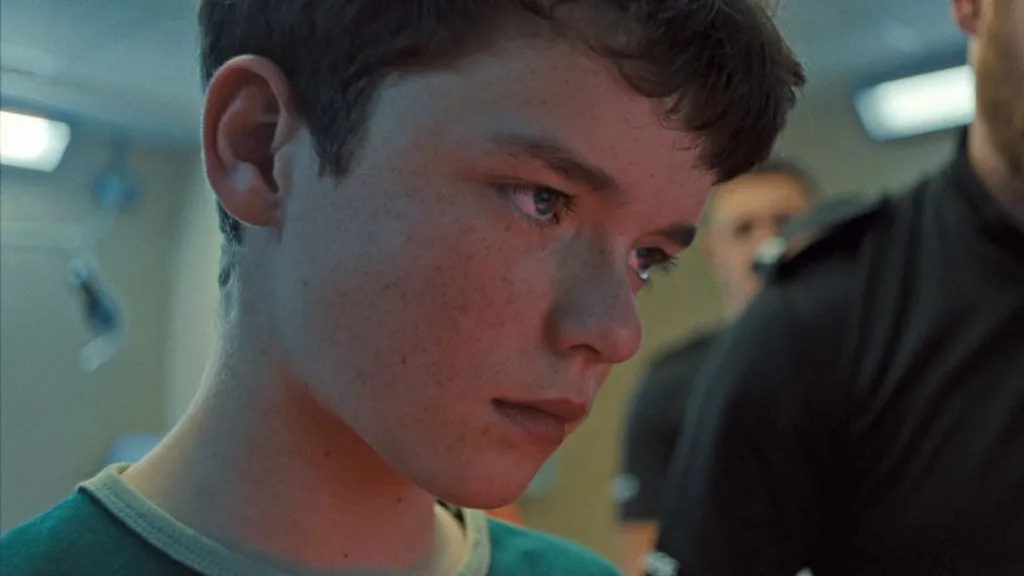
Netflix’s critically acclaimed drama Adolescence has sparked widespread conversations across various platforms, from the UK Parliament to US talk shows and even the gates of schools. At the center of the debate is the fictional tale of Jamie, a 13-year-old boy accused of stabbing a girl, and the complex web of factors that led him down a violent path.
Jack Thorne, the writer behind Adolescence, shared that he’s received messages from people he hasn’t heard from in years, telling him how the show is inspiring deep discussions with their children. “It’s really gratifying,” Thorne says. His son’s headteacher even approached him with concerns about the influence of such stories on young minds ,Adolescence asking how schools could intervene.
Thorne’s script, created in collaboration with actor Stephen Graham, portrays the many forces shaping Jamie’s behavior. The series delves into how social media and incel (involuntary celibate) ideologies, which often blame women for men’s struggles in relationships, play a significant role in shaping Jamie’s worldview. However, Thorne clarifies that the show does not solely blame these external influences. “Jamie’s situation is a result of multiple, complicated factors,” Thorne says, highlighting the roles of Jamie’s parents, school, and social circle.
In the series, Jamie, played by Owen Cooper, is relentlessly bullied online, which deepens his insecurities. He’s exposed to harmful ideologies about sexual violence and relationships, which resonate with his feelings of isolation. “He’s this vulnerable kid, and these messages make sense to him. He starts to believe violence is the only way to reset the balance,” Thorne explains.
To understand Jamie’s mindset, Thorne himself explored dark corners of the internet, including 4Chan and Reddit. He found the influence of harmful messages was far more subtle and pervasive than expected, coming not just from notorious figures like Andrew Tate, but also from smaller, seemingly innocuous online spaces, such as video game forums that distort messages about gender dynamics.
The show’s release comes at a time when concerns about toxic masculinity and the influence of internet subcultures are becoming more urgent. Former England football manager Sir Gareth Southgate recently condemned “callous, manipulative, and toxic influencers” in a speech, emphasizing that these figures are far from the role models young men need. Thorne agrees but believes the solution requires more than just better role models.
“We’ve been talking about role models for years,” says Thorne. “The solution needs to be more radical. It’s not just about who we look up to, but about changing the culture that young people are consuming—and how technology facilitates that culture.” While Thorne acknowledges that positive role models can have a significant impact, he insists that deeper, systemic changes are necessary.
Thorne’s call for radical solutions has gained traction, including from Prime Minister Sir Keir Starmer, who recently watched Adolescence with his teenage children. He condemned the violence portrayed in the show as “Adolescence ” and recognized that it’s part of a broader cultural issue. Thorne hopes that Starmer will see the urgency of addressing the crisis in schools, particularly when it comes to preventing boys from harming girls or each other.
One of Thorne’s suggestions includes a smartphone ban in schools, similar to the laws in Australia, which prevent children under 16 from using social media. He also proposes expanding this ban to all smartphone use, especially in the context of gaming. “We need to separate our children from this pernicious culture online,” Thorne argues.
While a ban might face resistance from teens, some of Adolescence recent discussions show mixed opinions. Three young men appeared with him on a BBC segment, each offering different views on the potential for such a ban. One supported it, seeing it as a balanced approach, while another called it “unfair,” and a third worried about the potential loss of the positive aspects of social media.
For Thorne, the conversation is deeply personal. His son, currently eight years old, will soon face the same challenges around technology use. “I’m still processing how to handle it,” Thorne admits. The writer has learned much about the pressures facing young people today, and while he’s still figuring out how to guide his own child through these challenges, he remains steadfast in his belief that more radical action is needed to protect the next generation from the damaging influences online on Adolescence.
As Adolescence continues to spark important conversations, Thorne hopes the series will inspire not just awareness, but real change in how society addresses youth violence, online harm, and the cultural pressures shaping young minds.